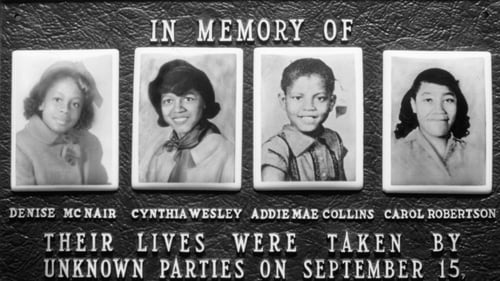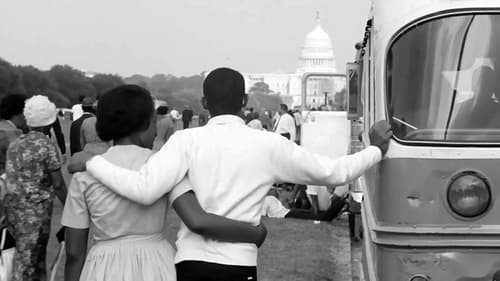
Self
A once-in-a-lifetime experience featuring first-ever performances of tracks from All Over the Place, a retelling of the story of KSI, past, present and future with special guests and key characters throughout his journey and more. Let KSI take you on an adventure through his world. Get ready for thrills, laughs and lots of surprises alongside huge production value, highly stylised artistic direction, flawless tunes, costume changes, a boxing match and choreography by industry leaders Black Skull Creative.

Self - with Freedom Riders (archive footage) (uncredited)
Documentário que relembra um dos piores crimes raciais da história americana. Em pleno apogeu dos movimentos por direitos civis, uma bomba explode em uma igreja do Alabama matando quatro meninas negras.

The Black Audio Film Collective’s seventh film envisioned the death and life of the African American revolutionary as a seven part study in iconography as narrated by novelist Toni Cade Bambara and actor Giancarlo Espesito. The stylized tableaux vivants that memorialise Malcolm’s life referenced the early 20th century funeral photography of James Van der Zee’s The Harlem Book of the Dead and the elemental static cinematography of Sergei Paradjanov’s The Colour of Pomegranates.

Self (archive footage) (uncredited)
Uma homenagem ao controverso ativista negro e líder da luta pela liberação negra. Ele chegou ao fundo do poço durante seu encarceramento nos anos 50, tornou-se um muçulmano negro e, mais tarde, líder da Nação do Islã. Seu assassinato em 1965 deixou um legado de autodeterminação e orgulho racial.

Self - Remarks After Death of Malcolm X (archive footage)
James Earl Jones narrates this fascinating and moving documentary about the life of the assassinated black leader through various sources.

Self
The March, also known as The March to Washington, is a 1964 documentary film by James Blue about the 1963 civil rights March on Washington. It was made for the Motion Picture Service unit of the United States Information Agency for use outside the United States – the 1948 Smith-Mundt Act prevented USIA films from being shown domestically without a special act of Congress. In 1990 Congress authorized these films to be shown in the U.S. twelve years after their initial release. In 2008, the film was selected for preservation in the United States National Film Registry by the Library of Congress as being "culturally, historically, or aesthetically significant". (Wikipedia)

Self
Nominated for Emmy for "Program of the Year." First look at the lives of Negros on American television - in their own word. Produced/Directed by Nicholas Webster, co-written by Webster an Louis Lomax.

Self
When he rolled into the Jim Crow South on a Greyhound bus - a black man sitting in the whites-only front seat - James Farmer was scared. "Courage is not being unafraid, but doing what needs to be done in spite of fear," said the founder of the Freedom Rides and pioneer of the earliest sit-ins. A relentless leader, a dynamic speaker, and a forceful organizer, Farmer was one of the first civil rights activists to use nonviolent direct action to fight for dignity and justice. Yet at what cost? His own family suffered from his frequent absences, prison stays, and threats made on his life. And, he was continually disappointed in his lack of recognition, especially after witnessing the momentous legacy of Martin Luther King, a man ten years his junior. The Good Fight chronicles Farmer's life, in his own words, from his earliest days as a "Great Debater" at Wiley College to his legacy teaching a new generation of students about the movement that shaped a country. —Laura Neitzel







